Marcus Poggi
Regularization and Global Optimization in Model-Based Clustering
Feb 05, 2023



Abstract:Due to their conceptual simplicity, k-means algorithm variants have been extensively used for unsupervised cluster analysis. However, one main shortcoming of these algorithms is that they essentially fit a mixture of identical spherical Gaussians to data that vastly deviates from such a distribution. In comparison, general Gaussian Mixture Models (GMMs) can fit richer structures but require estimating a quadratic number of parameters per cluster to represent the covariance matrices. This poses two main issues: (i) the underlying optimization problems are challenging due to their larger number of local minima, and (ii) their solutions can overfit the data. In this work, we design search strategies that circumvent both issues. We develop efficient global optimization algorithms for general GMMs, and we combine these algorithms with regularization strategies that avoid overfitting. Through extensive computational analyses, we observe that global optimization or regularization in isolation does not substantially improve cluster recovery. However, combining these techniques permits a completely new level of performance previously unachieved by k-means algorithm variants, unraveling vastly different cluster structures. These results shed new light on the current status quo between GMM and k-means methods and suggest the more frequent use of general GMMs for data exploration. To facilitate such applications, we provide open-source code as well as Julia packages ("UnsupervisedClustering.jl" and "RegularizedCovarianceMatrices.jl") implementing the proposed techniques.
FuSS: Fusing Superpixels for Improved Segmentation Consistency
Jun 06, 2022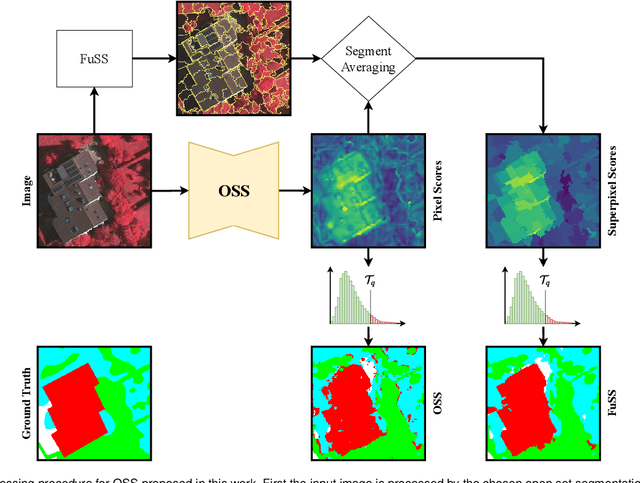

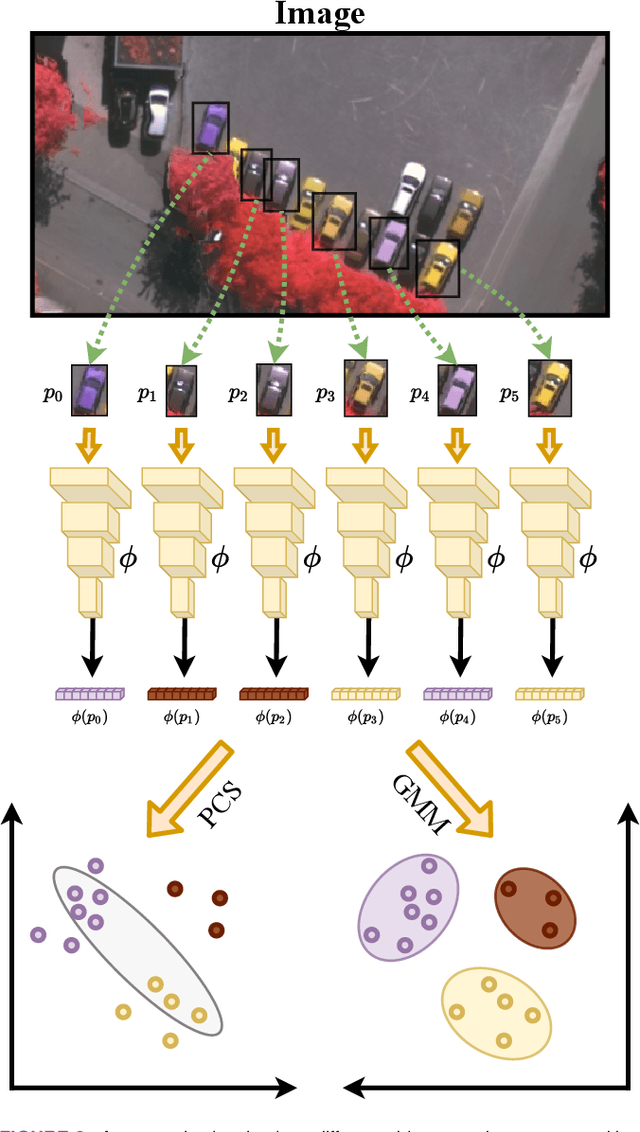

Abstract:In this work, we propose two different approaches to improve the semantic consistency of Open Set Semantic Segmentation. First, we propose a method called OpenGMM that extends the OpenPCS framework using a Gaussian Mixture of Models to model the distribution of pixels for each class in a multimodal manner. The second approach is a post-processing which uses superpixels to enforce highly homogeneous regions to behave equally, rectifying erroneous classified pixels within these regions, we also proposed a novel superpixel method called FuSS. All tests were performed on ISPRS Vaihingen and Potsdam datasets, and both methods were capable to improve quantitative and qualitative results for both datasets. Besides that, the post-process with FuSS achieved state-of-the-art results for both datasets. The official implementation is available at: \url{https://github.com/iannunes/FuSS}.
Conditional Reconstruction for Open-set Semantic Segmentation
Mar 02, 2022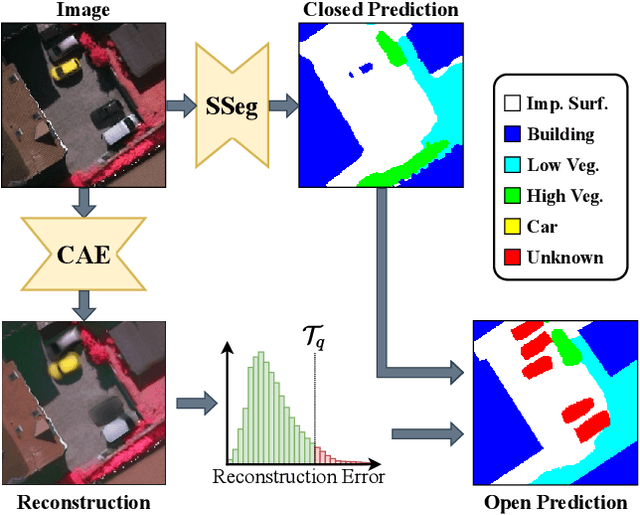

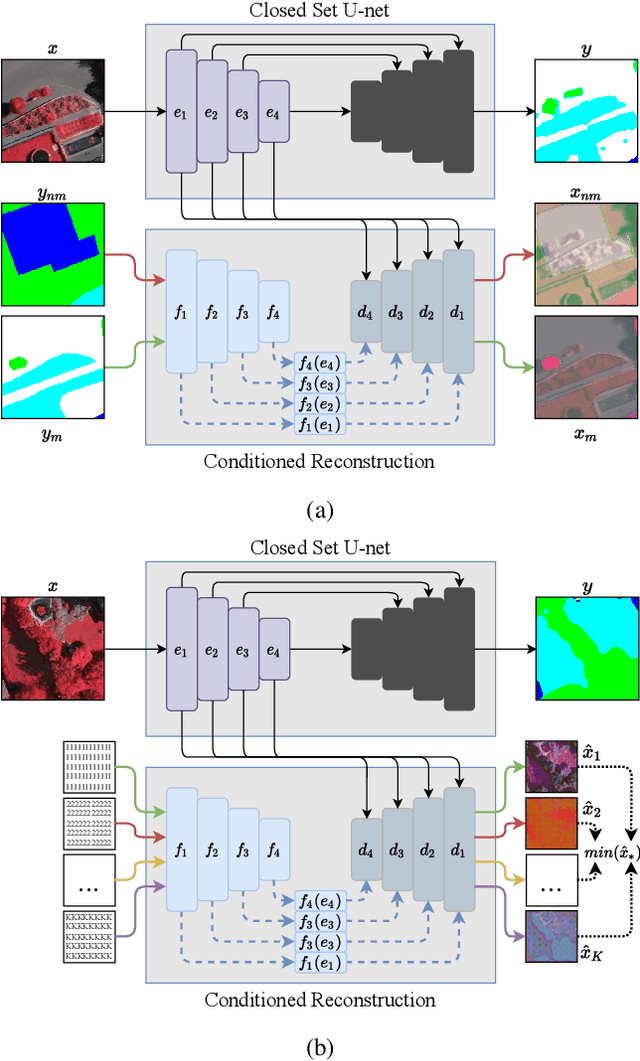
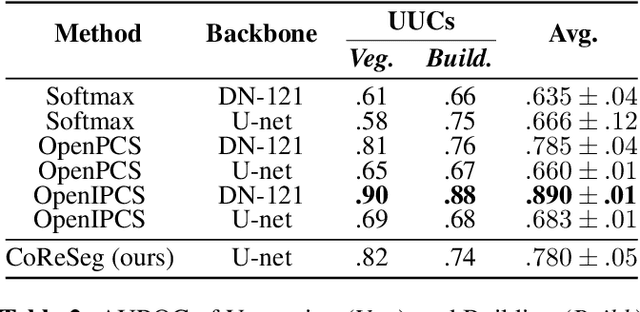
Abstract:Open set segmentation is a relatively new and unexploredtask, with just a handful of methods proposed to model suchtasks.We propose a novel method called CoReSeg thattackles the issue using class conditional reconstruction ofthe input images according to their pixelwise mask. Ourmethod conditions each input pixel to all known classes,expecting higher errors for pixels of unknown classes. Itwas observed that the proposed method produces better se-mantic consistency in its predictions, resulting in cleanersegmentation maps that better fit object boundaries. CoRe-Seg outperforms state-of-the-art methods on the Vaihin-gen and Potsdam ISPRS datasets, while also being com-petitive on the Houston 2018 IEEE GRSS Data Fusiondataset. Official implementation for CoReSeg is availableat:https://github.com/iannunes/CoReSeg.
 Add to Chrome
Add to Chrome Add to Firefox
Add to Firefox Add to Edge
Add to Edge